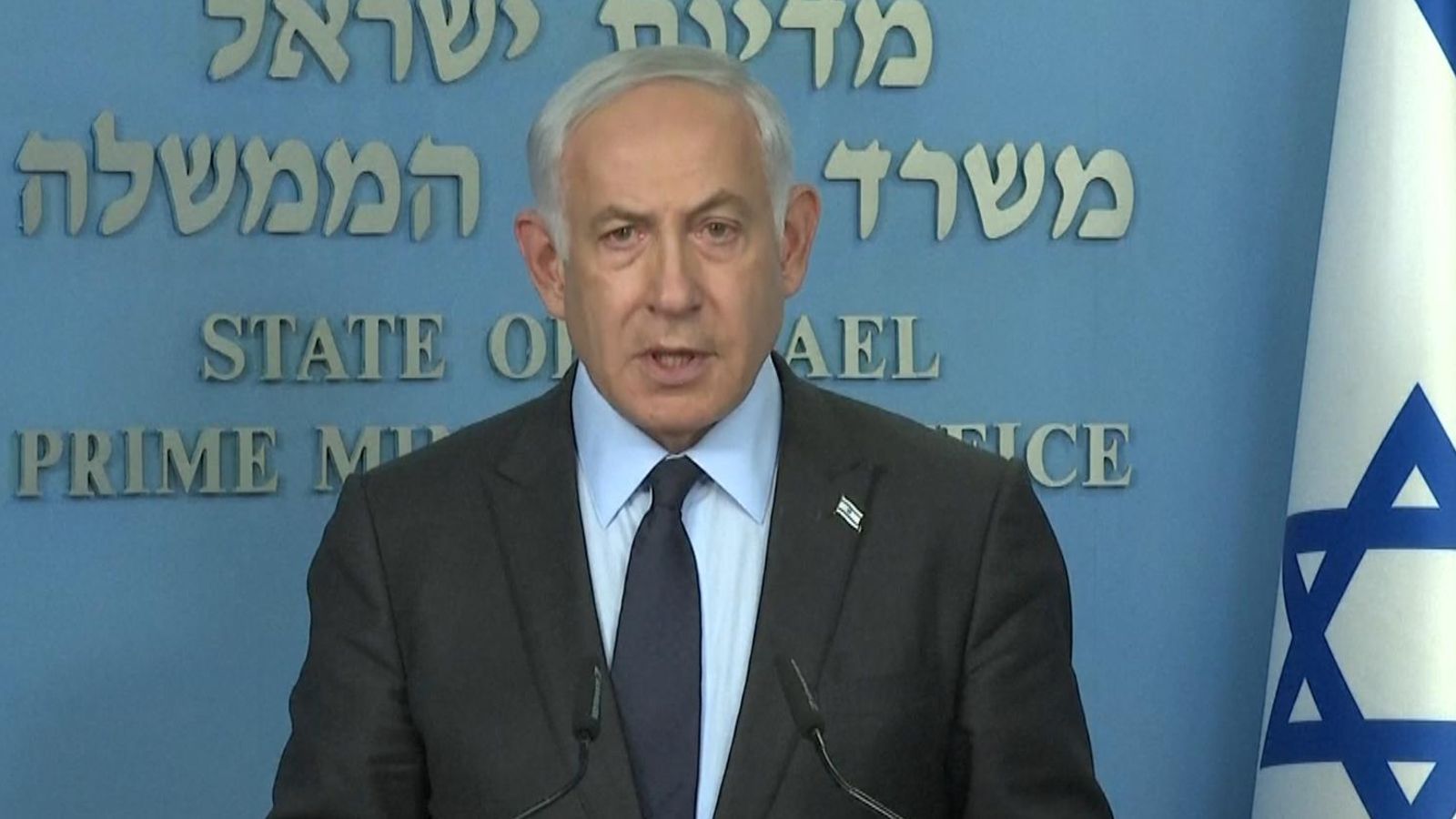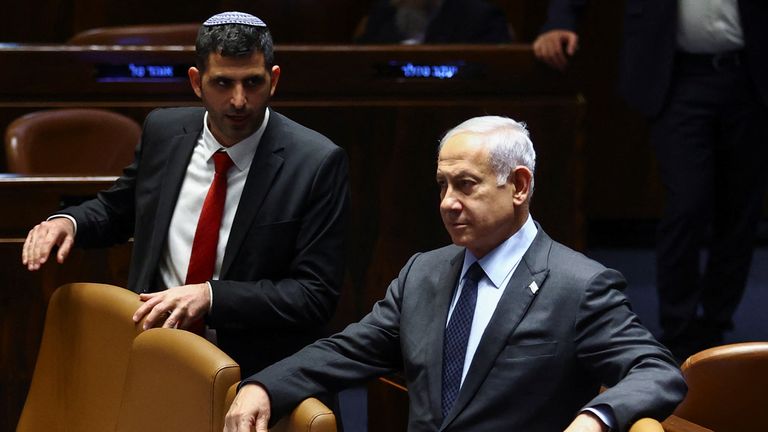
Israel is in the “heart of a crisis”, Israeli Prime Minister Benjamin Netanyahu has admitted, as he delays a controversial overhaul of the judiciary.
Addressing the nation following widespread protests involving hundreds of thousands of people, Mr Netanyahu said he would “turn over every stone” to find a solution.
“From a will to prevent the rift in the nation, I have decided to delay the second and third reading (of the bill) in order to reach a broad consensus,” he said.
He also warned, however, that Israel is “at a dangerous crossroads”.
Israel’s main labour union called off a national stoppage shortly after his address. “The strike that I announced this morning will end,” said Arnon Bar-David, chairman of the Histadrut labour federation.
He also offered his help in seeking a compromise.
Israel’s president, Isaac Herzog, said that stopping the legislation was the right thing to do and the broadest possible agreement was required.
Former deputy prime minister Benny Gantz said he would approach dialogue with an “open heart”.
UK Foreign Secretary James Cleverly welcomed the decision to pause the legislation and said it was “vital that the shared democratic values that underpin that (UK-Israel) relationship are upheld”.
Under the proposals, ministers would have more control over the appointments of judges, including to the Supreme Court, while diminishing that body’s ability to veto legislation or rule against the government.
Earlier, Mr Netanyahu’s coalition partners revealed a delay had been agreed.
The potential overhaul will not now be discussed in parliament until next month, said coalition member party Jewish Power.
The idea is to “pass the reform through dialogue”, the party said in a statement.
Its leader, security minister Itamar Ben-Gvir, said he had agreed to delay the government’s plans in exchange for a promise that they would be brought back after the forthcoming parliamentary recess.
“I agreed to remove the veto to reject the legislation in exchange for a commitment by Prime Minister Benjamin Netanyahu that the legislation would be submitted to the Knesset for approval in the next session,” Mr Ben-Gvir said.
Mr Netanyahu’s sacking of his defence minister, Yoav Gallant, for objecting to the reforms sparked huge demonstrations in major towns.
It prompted Mr Herzog – a head of state who is supposed to remain above politics – to call on Mr Netanyahu to stop the legislative process, saying: “Come to your senses!”
Mr Herzog said the “eyes of the whole world are on you” following the PM’s dismissal of Mr Gallant on Sunday.
All flights were grounded at Ben Gurion Airport, the country’s main international hub, after the head of the Israel Airports Authority workers’ committee announced a strike.
Lieutenant General Herzi Halevi, the Israeli army’s chief of staff, said this period of time is “different to any that we have known before”.
He added: “We have not known such days of external threats coalescing, while a storm is brewing at home.”













